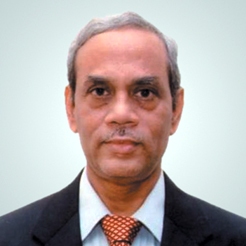Gopal Das, former Chairman and Managing Director, BSNL

Bharat Sanchar Nigam Limited (BSNL) has had a tough year in terms of mobile and wireline growth. However, it did very well in the broadband segment. Gopal Das, former chairman and managing, BSNL talks to tele.net about the company’s milestones, performance, issues and efforts to regain its top position in the industry. Excerpts…
How has the company performed in 2010 as compared to 2009?
In terms of financial performance in 2009-10, Bharat Sanchar Nigam Limited (BSNL) posted a loss (after tax) of Rs 18.22 billion. The loss occurred due to a decline in revenue, increase in expenditure, etc. BSNL earned revenues of Rs 320.45 billion in 2009-10, which is 10.4 per cent less in comparison to the previous financial year on account of a huge reduction in tariffs, fierce competition as well as a decline in fixed wireline connections due to the preference of subscribers for wireless connections.
However, BSNL has registered continuous growth in the broadband segment and in the current year, revenues have increased by Rs 7.95 billion from Rs 16.90 billion to Rs 24.85 billion, which is 47 per cent more than that of the preceding financial year. The current year’s expenditure has increased on account of employee wage revisions with effect from January 1, 2007 as well as the amortisation of one-time spectrum fee for 3G and broadband wireless access (BWA) services. The wage revision alone has caused an additional expenditure of Rs 29 billion over the previous year on account of the payment of arrears for the period 2007 to March 31, 2010. Had this expenditure not taken place, the company would have recorded a profit before tax of Rs 7.03 billion.
What have been the company’s key achievements in 2010?
Restructuring the ancient work style to a more corporate, business-oriented work style has been an important step for BSNL. It was only during this time that the innovative Project SHIKHAR was exercised. The project has three main facets – defining a shared aspiration for BSNL, developing an overall strategic agenda across its key businesses and redesigning the organisation’s structure to materialise the change. Moreover, during the year, BSNL came up with a four-pronged strategy to ensure that it is in sync with the project. The focus is on the four core growth engines – fixed line, mobile, enterprise and new businesses.
The company also devised an enterprise strategy that focused on targeting corporate customers through unique and differentiated solutions via dedicated key account management sales teams and channel partners. Further, BSNL made a business unit-wise distinct vertical structure, which was implemented across the organisation by mapping the existing executives in their new roles.
BSNL also incorporated a key performance indicators-based performance management system (PMS) to measure and reward performance at various levels. Group PMS rewards were given to the entire group based on their performance.
What are BSNL’s 3G and BWA plans?
BSNL has already begun 3G services in more than 700 cities and has a customer base of 2.5 million. We provide services such as video calling, video conferencing, TV channels, video on-demand, movie and song downloads, etc.
In terms of Wi-Max services, BSNL has started providing high-speed connectivity, especially in the rural areas for government initiatives such as connecting 100,000 common service centres.
Are there any challenges and concerns that need to be addressed going forward?
Being a PSU, BSNL has to fulfil the social obligation of providing telecom services in remote areas at lower costs in a fiercely competitive scenario. It also has to incur high costs for its staff inherited from the Department of Telecommunications, which cannot be reduced or controlled in the way private players do. The tendering process to procure new technology is cumbersome and needs to be relaxed in order to take advantage of the new technology in a timely manner as well as to increase the customer base.
What are BSNL’s future thrust areas?
On the customer service front, the focus will be on greater content provisioning and service offerings. On the technology front, the focus will be on migration to higher data speeds in the mobile segment using HSDPA and LTE (4G), upgradation of the telecom network to an IP-based network for seamless migration of different technologies, and the use of conventional energy sources for power back-up in rural areas.
For broadband, major expansions have been planned using technologies such as ADSL2+ and VDSL for wireline, and Wi-Max, EVDO and 3G broadband for wireless. BSNL is gearing up to meet the national broadband targets set by the government. The major thrust area will be to take broadband to every home in the country, including in the rural areas. To generate interest in broadband, various value-added services such as VOIP will be provided in addition to services such as IPTV, games-on-demand, broadband virtual private network, entertainment portals, video conferencing and educational software which have already been deployed.
- Most Viewed
- Most Rated
- Most Shared
- Related Articles
- R.K. Upadhyay, Chairman and MD, BSNL
- Interview with Shashin Devsare, Executiv...
- Interview with Marten Pieters, MD and CE...
- Marten Pieters, Managing Director and Ch...
- B.S. Shantharaju, CEO, Indus Towers
- Views of Sandeep Nair, MD, Emerson Netwo...
- Interview with Samaresh Parida, Director...
- Interview with Himanshu Kapania, Deputy ...
- Interview with J.S. Sarma, Chairman, TRA...
- Views of Dhananjay Pavgi, Principal Cons...






